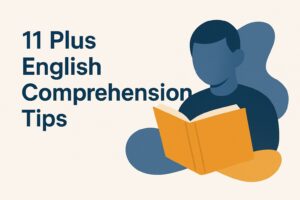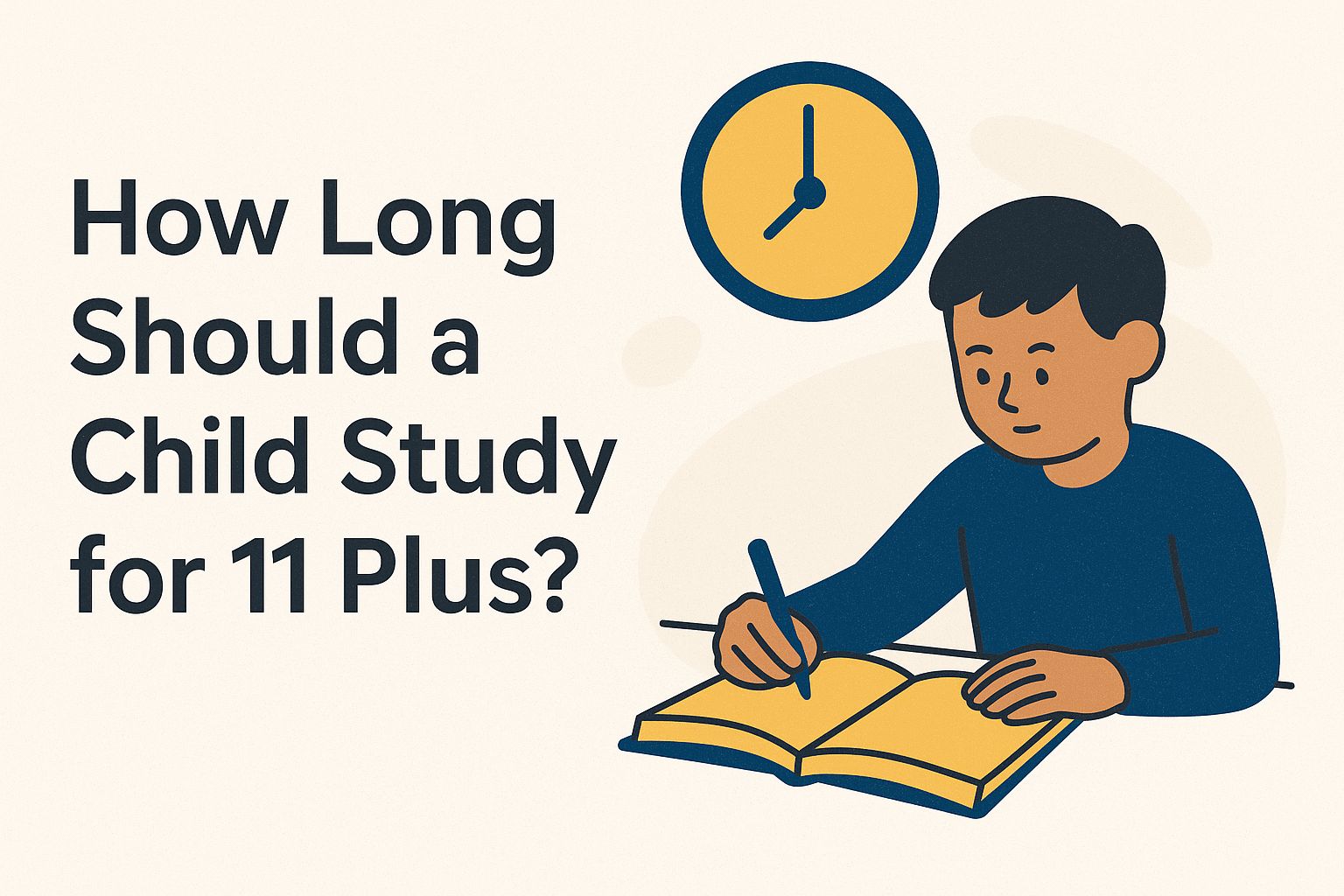
How Long Should a Child Study for 11 Plus?
Every parent wants to set their child up for success, especially when it comes to crucial exams like the 11 Plus. But how much study is actually needed? Many parents wonder how long should a child study for 11 plus, and the truth is that striking the right balance between preparation and play is essential. Understanding the key subjects and skills involved can help create that balance.
Join us as we explore recommended study durations, effective techniques, and tips for keeping your child motivated and engaged. Let’s dive into crafting a smart study plan!
What is the 11 Plus Exam?
The 11 Plus Exam generally evaluates children in four primary areas: Mathematics, English, Verbal Reasoning, and Non-Verbal Reasoning. Each section includes a variety of question types.
In Mathematics, students encounter problem-solving and reasoning questions, while the English section encompasses comprehension exercises and creative writing tasks.
Verbal Reasoning assesses logic and pattern recognition skills, and Non-Verbal Reasoning focuses on visual-spatial understanding. Each year, approximately 70,000 children participate in the 11 Plus exam, primarily with the aim of securing a place in grammar schools.
To prepare effectively, many students familiarise themselves with past exam papers and utilise various resources, such as:
- Bond 11+
- CGP books
- Online platforms like Mymaths and Auralog
These resources offer targeted practice and valuable feedback to help students succeed. As mentioned, understanding the format of the 11 Plus exam can significantly aid in preparation.
Importance of the 11 Plus Exam
Passing the 11 Plus Exam opens the door to top grammar and independent schools, which can lead to enhanced academic opportunities and resources.
Performing well on the 11 Plus can significantly impact a student’s educational journey. Schools that are more selective often demonstrate better academic outcomes; for example, students from grammar schools typically achieve GCSE scores that are 10-15% higher than those of their peers in non-selective schools.
These institutions frequently have higher university admission rates, with many students gaining entry to prestigious universities.
By engaging in focused preparation—such as practising past papers, using revision apps like SQA Exam Bus, or participating in study groups—students can boost their chances of success and access these valuable opportunities.
Understanding Study Requirements

To excel in the 11 Plus Exam, students must establish a strong foundation in essential subjects, along with specific skills that align with the exam’s requirements. Understanding the structure and nuances of the exam is crucial— our guide on what the 11 Plus Entrance Exam entails provides a detailed overview to help students and parents navigate the process effectively.
Key Subjects Covered in the Exam
The exam assesses proficiency in Mathematics, which encompasses problem-solving and arithmetic, as well as English, focusing on comprehension and vocabulary, in addition to reasoning abilities. To prepare effectively, it is important to concentrate on key areas within these subjects.
- For Mathematics, it is advisable to practise problem-solving techniques and become familiar with basic arithmetic operations. Resources such as Khan Academy provide free online courses that specifically target essential maths skills.
- In terms of English, improving comprehension can be achieved by reading a variety of texts and engaging in vocabulary exercises available through Merriam-Webster’s Word of the Day.
- To enhance reasoning abilities, utilising practice exams from websites like ETS can help individuals become accustomed to the various question formats.
Consistent practice and review of these resources can greatly enhance one’s confidence in preparation for the exam.
Skills Needed for Success
Achieving success in the 11 Plus Exam necessitates strong analytical skills, critical thinking, and effective time management during the test. To develop these essential skills, students can participate in activities that challenge their logical reasoning abilities, such as brain teasers like Sudoku or logic grid puzzles.
Additionally, timed quizzes can mimic the pressure of the exam environment, which can significantly enhance both speed and accuracy.
For improving analytical skills, it is beneficial to encourage regular practice with sample questions in mathematics and English, particularly in areas where students may be encountering difficulties.
Utilising resources such as Bond 11+ practice papers and online platforms like CEM or 11 Plus Tutor can provide invaluable exercises tailored specifically to the test format. Consistent practice and review can lead to substantial improvements in performance.
Recommended Study Duration
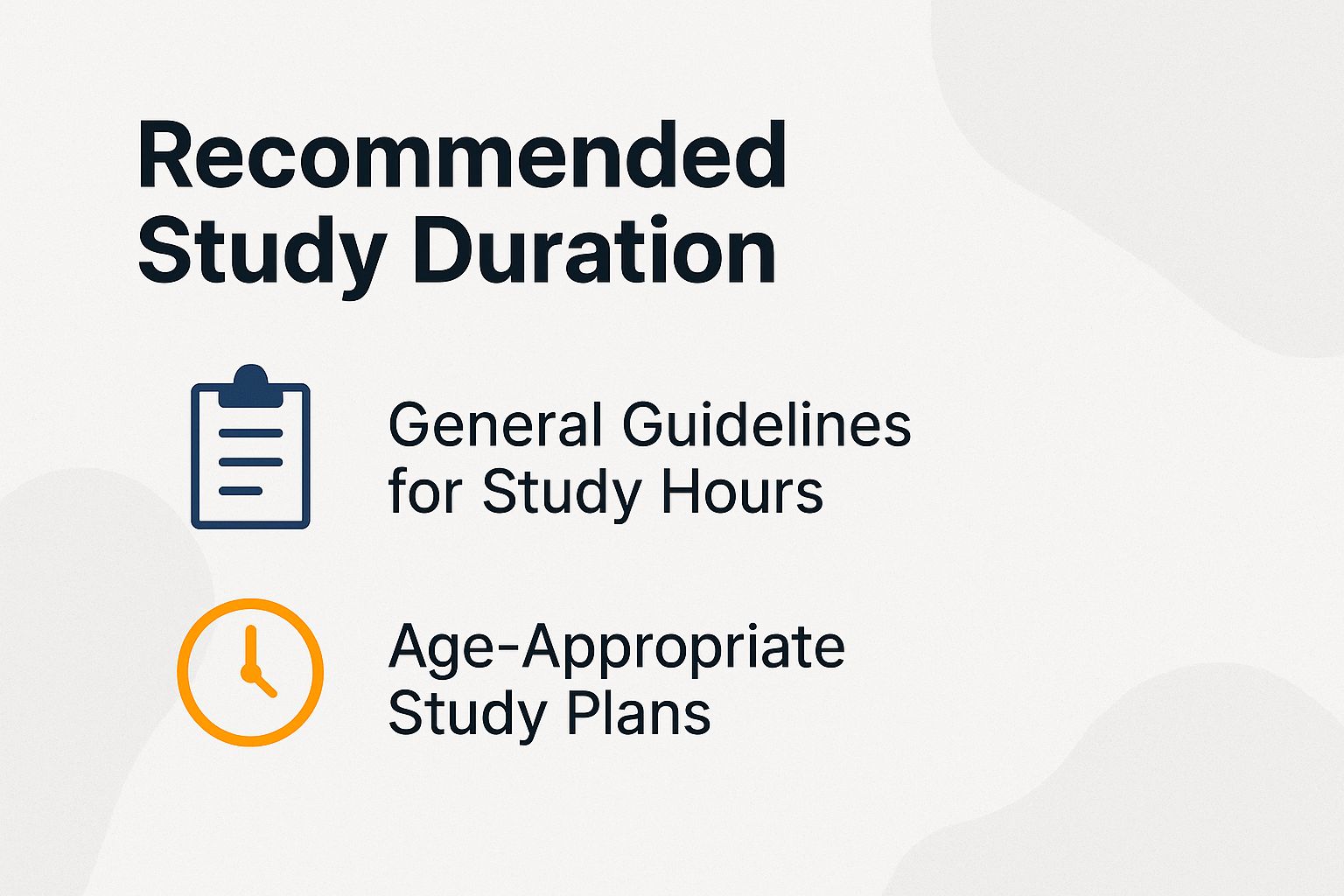
Choosing the appropriate study duration for the 11 Plus Exam can greatly enhance a child’s preparedness and boost their confidence in the lead-up to the test.
General Guidelines for Study Hours
Students are encouraged to aim for 8-12 hours of focused study each week in preparation for the 11 Plus Exam, ideally beginning at least six months in advance.
To structure these study hours effectively, it can be beneficial to create a weekly schedule that balances different subjects. For example, one might allocate three days for maths practice, two days for English comprehension, and one day for verbal reasoning.
Starting with shorter study sessions of around 45 minutes can be a good strategy, gradually extending to 90 minutes as concentration improves. Incorporating breaks of 10-15 minutes after each session can help enhance retention and overall productivity.
Utilising resources such as past papers and specialised applications like CGP’s 11 Plus revision tools can provide targeted practice. It is also advisable to adjust the study schedule based on progress, ensuring consistent review and employing varied techniques to maintain engagement throughout the preparation process.
Age-Appropriate Study Plans
Study plans should be customised to align with a child’s age, year group, and learning pace, as younger students typically benefit from shorter and more frequent study sessions.
For instance, children aged 6 to 8 can engage in daily study sessions lasting about 20 minutes, focusing on foundational subjects such as maths and reading. Incorporating enjoyable resources—like interactive websites or educational games—can significantly enhance their engagement.
As children move into Year 4 (ages 8–9), it is a good stage to begin light 11 Plus preparation. At this age, short sessions of 25 to 30 minutes can introduce reasoning skills, vocabulary building, and fun problem-solving activities.
By Year 5 (ages 9–10), preparation should become more structured, with 30 to 45 minute study blocks that include practice papers and timed exercises. This is also when parents often begin to mirror the exam format more closely, blending core subjects with verbal and non-verbal reasoning practice.
For those aged 11 and older, or entering the final stages before an entrance exam, 60-minute study blocks may be more effective, combining independent study with group discussions for subjects like science or history. This approach supports various learning styles while helping to maintain their interest in the material.
Creating a Study Schedule
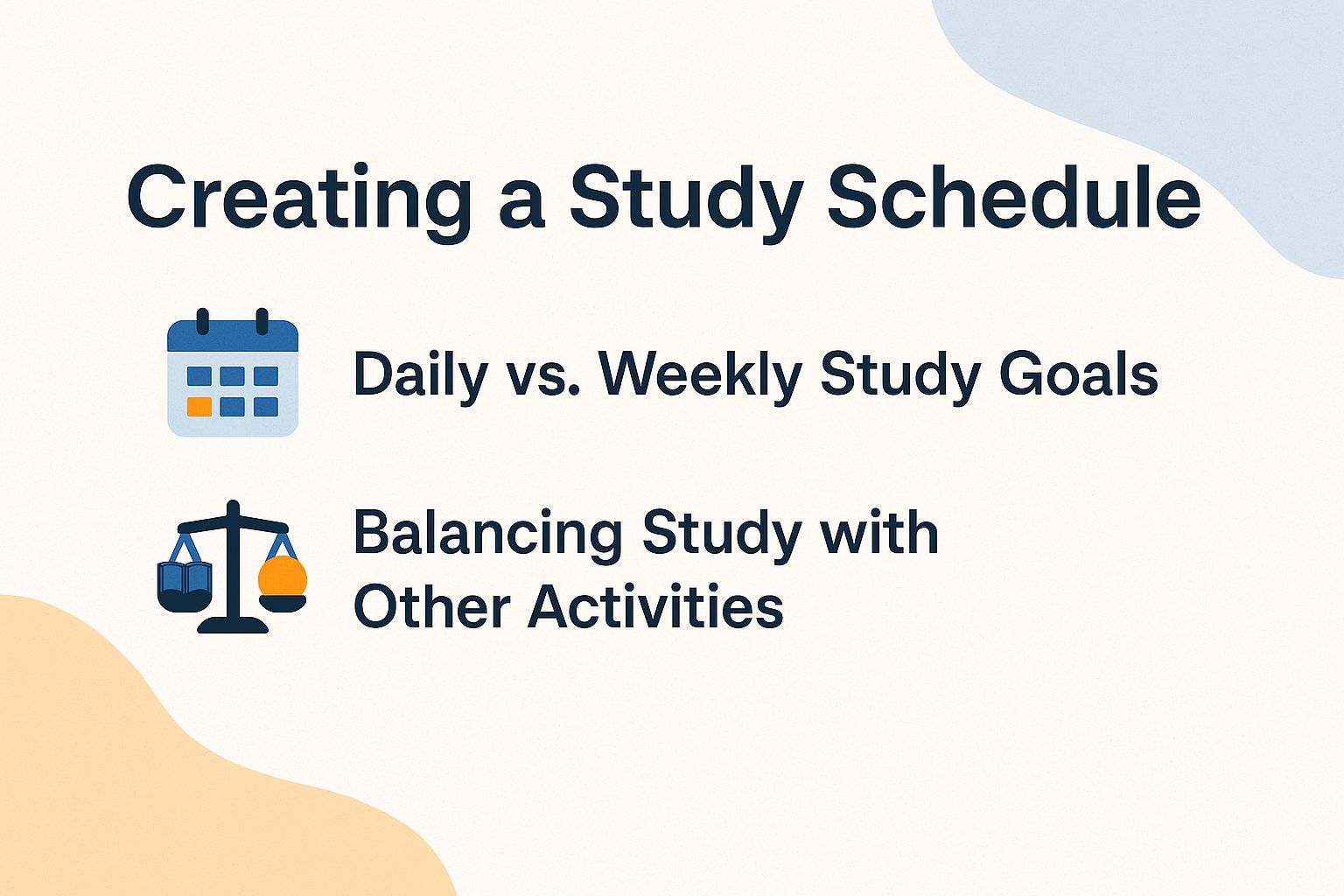
A well-structured study timetable can significantly assist students in managing their study time effectively, ensuring that all key areas are addressed before the exam.
By planning ahead, students can allocate sufficient time to each subject, making their preparation more comprehensive and organised.
Daily vs. Weekly Study Goals
Setting daily and weekly study goals can significantly assist students in tracking their progress and maintaining motivation throughout their preparation. To establish effective goals, it is beneficial to use the SMART criteria: Specific, Measurable, Achievable, Relevant, and Time-bound.
For instance, a daily target might involve studying one specific chapter from a textbook, while a weekly goal could focus on completing all exercises related to that chapter. Students can enhance their planning by creating a visual study calendar or utilising apps like Todoist to schedule these tasks, making it easier to monitor their achievements.
Moreover, breaking content into manageable sections not only improves understanding but also cultivates a sense of accomplishment with each successfully completed goal.
Balancing Study with Other Activities
Balancing study time with extracurricular activities is essential for maintaining a child’s motivation and preventing burnout during exam preparation. Incorporating structured breaks within study sessions can greatly enhance focus.
For example, employing the Pomodoro Technique—studying for 25 minutes followed by a 5-minute break—facilitates efficient time management.
In terms of leisure activities, it can be beneficial to schedule physical activities or creative hobbies during longer breaks. Utilising tools like Forest, an app that encourages focused study periods, can also motivate children to stay on track.
Establishing specific times for these breaks helps create a routine, making it easier for children to manage their time effectively without feeling overwhelmed.
Effective Study Techniques
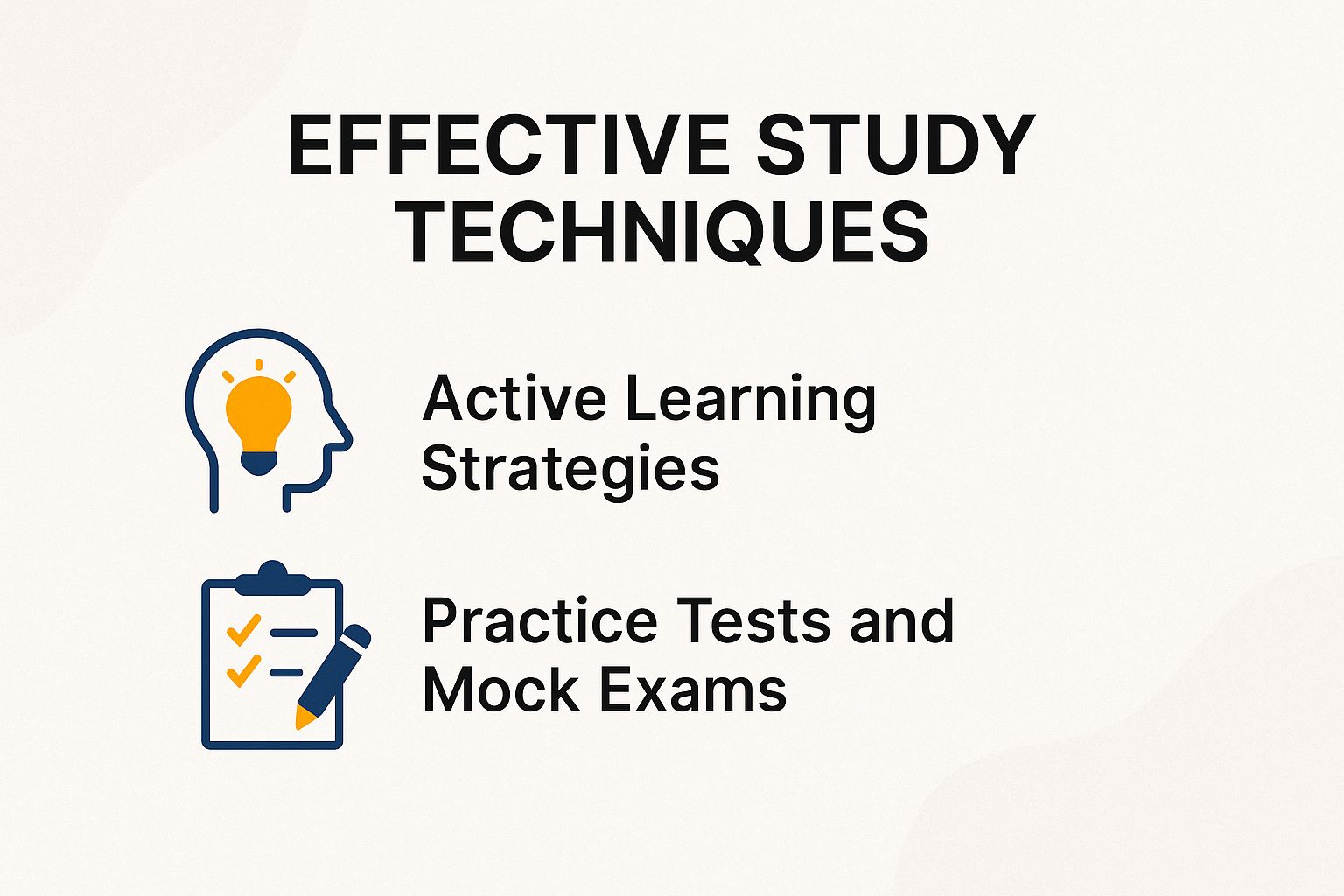
Utilising effective study techniques can significantly improve retention and understanding, turning passive reading into a more active and engaging experience. If interested, you might explore what should be in an 11 Plus study plan for structured learning.
Active Learning Strategies
Active learning strategies, such as summarising information and teaching concepts to others, can greatly enhance understanding and retention.
To implement these techniques, one might begin with mind mapping: this involves creating visual diagrams that connect ideas from the study material, which fosters a deeper understanding.
Engaging in group discussions can also be beneficial, as it allows participants to challenge each other’s thinking. By assigning a specific topic for review, each person can present their insights, enriching the learning experience.
Additionally, taking regular breaks to quiz oneself or a partner on the material can be quite effective. Research indicates that teaching others, often referred to as ‘peer instruction,’ not only solidifies one’s grasp of various subjects but also helps in developing essential communication skills.
Practice Tests and Mock Exams
Regularly taking practice tests and mock exams can greatly assist students in becoming familiar with the exam format and building their confidence. To effectively integrate practice tests into your study routine, it is advisable to start by identifying the types of tests that are relevant to your subject.
Establish a schedule to take a full-length practice test every two weeks, gradually increasing the frequency as the exam date approaches. It is also beneficial to utilise resources such as Khan Academy for practice questions or official test preparation sites to access authentic tests.
After completing each test, take some time for review, concentrating on any errors to deepen your understanding. This structured approach not only enhances information retention but also helps to alleviate exam anxiety as you grow more accustomed to the test format.
Monitoring Progress
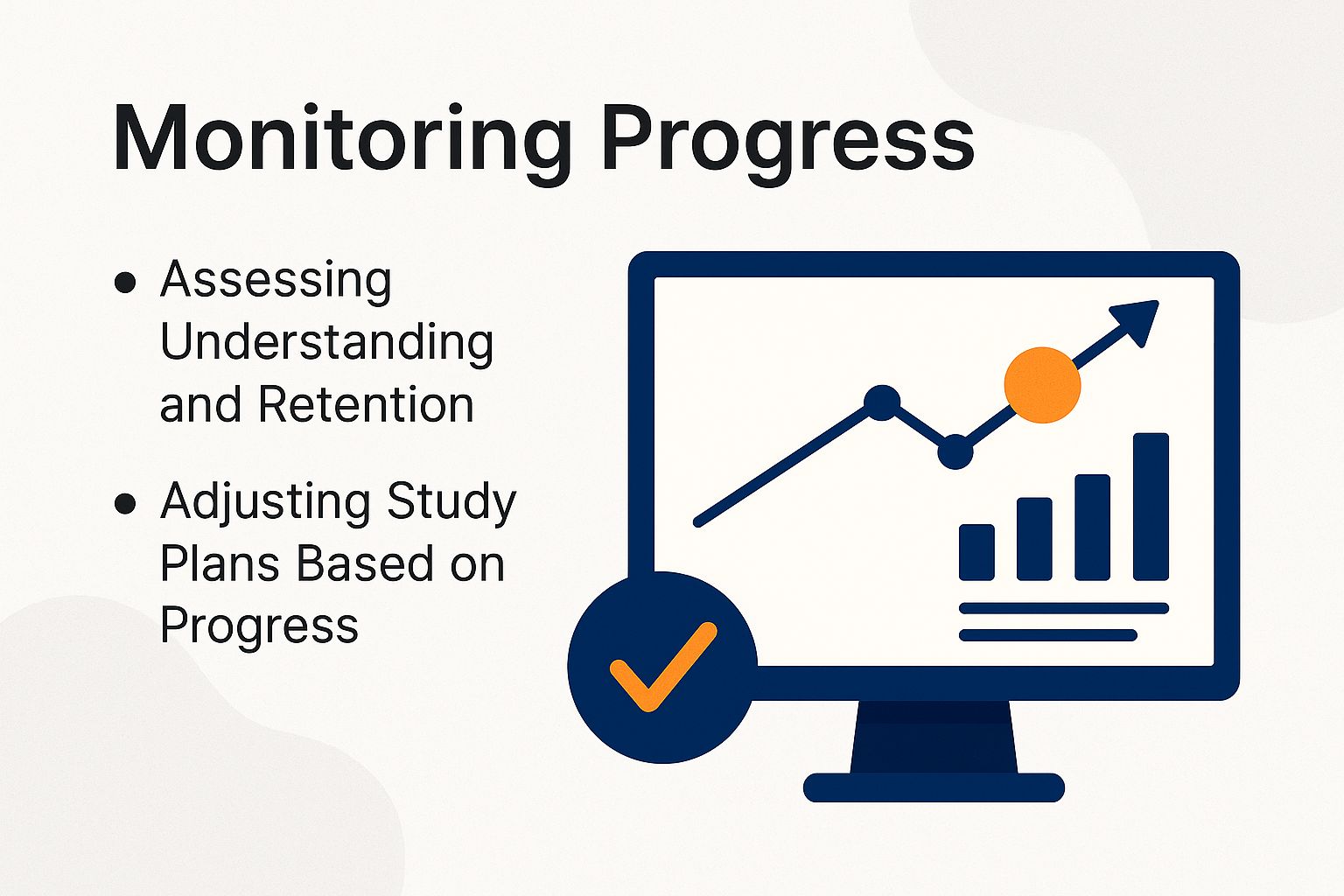
It is essential to monitor progress throughout the study period to ensure that students remain on track to meet their goals and to identify any areas that may require improvement.
Regular assessments and check-ins can provide valuable insights into their development and help guide their learning experience effectively.
Assessing Understanding and Retention
Regular self-assessments and quizzes serve as valuable tools for gauging a student’s understanding and retention of the material, effectively guiding future study focus.
To implement self-assessments effectively, one might consider utilising tools such as Quizlet for flashcards or Kahoot for interactive quizzes. Begin by creating a set of questions that specifically target key learning objectives, including vocabulary definitions or essential concepts from recent lessons.
It would be beneficial to schedule these quizzes fortnightly, allowing for the tracking of progress and making necessary adjustments to study plans. Furthermore, encouraging students to engage in verbal recaps with their peers can foster discussion and reinforce their knowledge.
This varied approach not only enhances retention but also helps to build confidence in their understanding.
Adjusting Study Plans Based on Progress
Flexibility in adjusting study plans according to ongoing assessments is essential for optimising student performance and addressing any knowledge gaps.
To effectively modify your study plan, it is important to regularly evaluate your performance across different subjects. Begin by tracking your marks and the time you dedicate to each subject on a weekly basis.
For example, if you observe a decline in your maths scores, consider increasing your study time by an additional 30 minutes each week and incorporating a variety of resources, such as Khan Academy or practice worksheets.
Utilising tools like Trello or Google Sheets can help you chart your progress, allowing you to adjust your focus areas each month based on the results. This iterative approach enables you to identify trends and reinforce your learning where it is most needed.
Common Challenges and Solutions
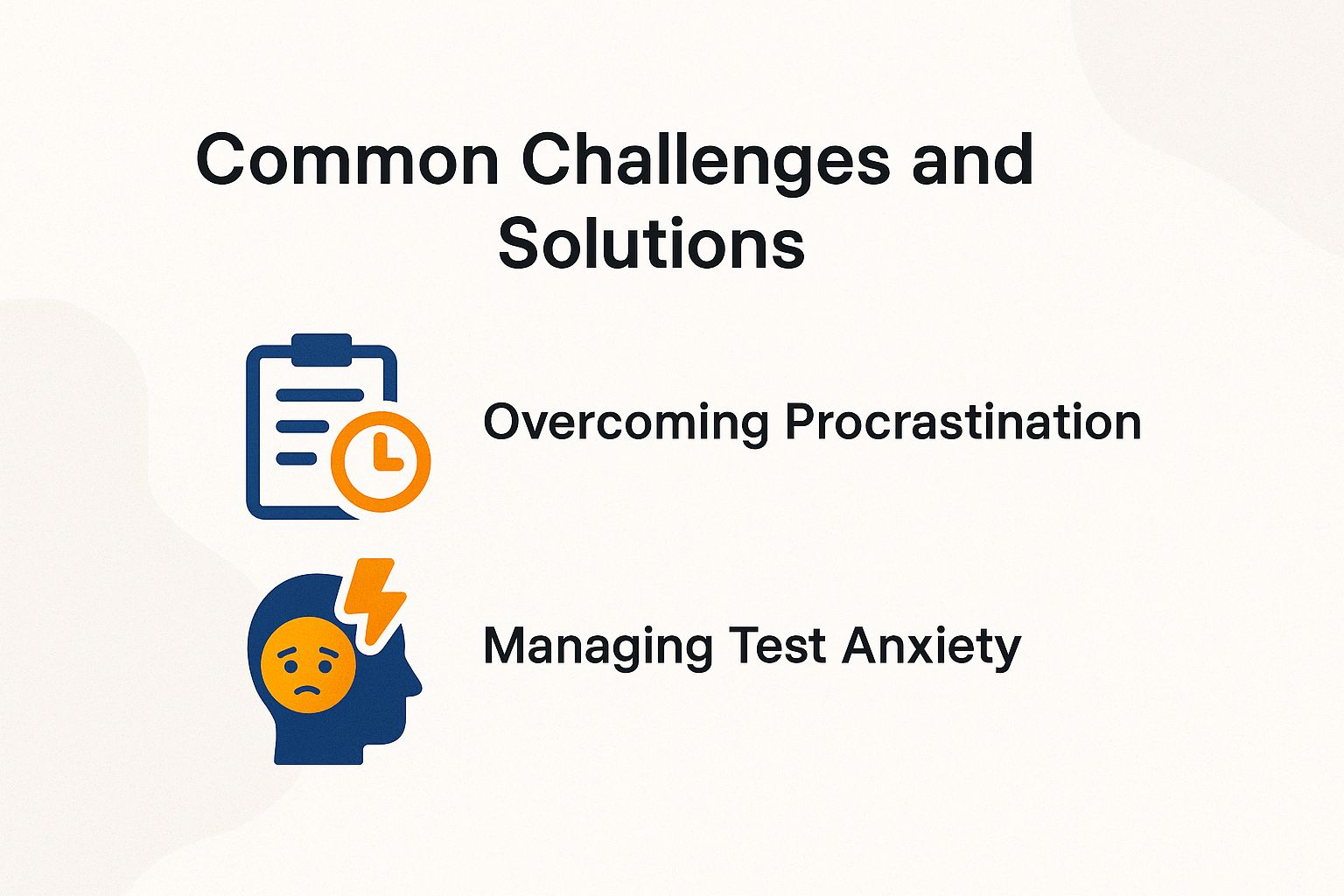
Students frequently encounter challenges while preparing for the 11 Plus exams. However, recognising these challenges can pave the way for effective solutions that significantly improve their study experience. Related insight: Growth Mindset for Young Learners: Building Resilience for Exams
Overcoming Procrastination
Procrastination often poses a challenge during exam preparation; however, implementing strategies such as setting clear deadlines and creating a structured schedule can effectively address this issue.
To improve your study productivity, consider using tools like Todoist for task management. This application allows you to break down your study goals into manageable tasks, making them less overwhelming. Additionally, Trello can assist you in visualising your progress through boards and lists, providing a clear overview of what you have accomplished.
Establishing a reward system can also be beneficial—perhaps treating yourself to a small indulgence or taking a break after completing a certain number of tasks to maintain high levels of motivation.
Another useful technique is the Pomodoro method, which involves studying for 25 minutes followed by a 5-minute break. This approach can make lengthy study sessions feel more manageable and less intimidating.
Managing Test Anxiety
Many students face the challenge of exam anxiety, but there are effective techniques, such as mindfulness and breathing exercises, that can help alleviate stress and enhance focus. To manage exam anxiety effectively, students should consider integrating a few essential practices into their daily routines.
- Beginning with deep breathing exercises can be beneficial. For instance, inhaling for four counts, holding the breath for four, and then exhaling for four counts can help calm the nervous system.
- Additionally, utilising mindfulness apps like Calm or Headspace can provide guided meditation sessions, which may improve overall mental clarity.
Another helpful approach is practising visualisation techniques. Students can imagine themselves confidently taking the exam, which can significantly boost their self-assurance. By regularly dedicating time to these methods, students can notably reduce anxiety both in the lead-up to and during exams.
Parental Involvement
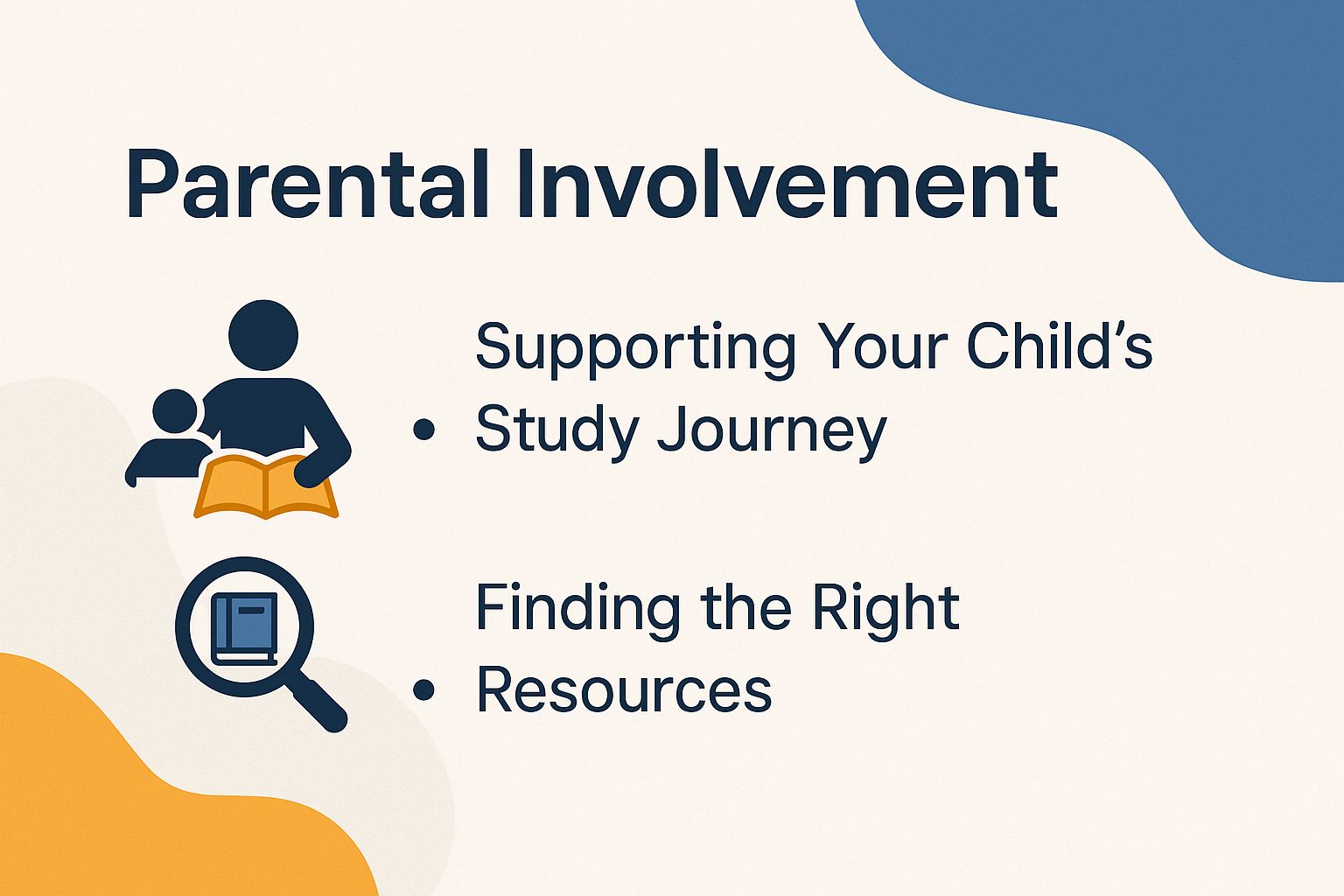
Parental involvement plays a significant role in shaping a child’s study habits and boosting their confidence.
When parents actively engage in their child’s education, they create a supportive environment that nurtures academic success.
Supporting Your Child’s Study Journey
Parents can significantly enhance their child’s study journey by fostering a conducive learning environment and promoting open communication regarding their progress.
To establish a dedicated study space, it is advisable to select a quiet area in the home that is equipped with a desk, adequate lighting, and minimal distractions. Encouraging your child to personalise this space with motivational quotes or cherished photographs can also make it more inviting.
Regular check-ins can be beneficial; consider scheduling weekly meetings to discuss study schedules, progress, and any challenges your child may encounter.
Utilising tools such as Google Calendar or a simple wall planner can help visualise tasks and deadlines effectively.
This structured approach not only fosters a sense of responsibility but also encourages dialogue, ensuring your child feels supported throughout their educational pursuits.
Finding the Right Resources
Identifying and utilising the appropriate resources can greatly enhance a child’s preparation for the 11 Plus Exam, making their study time considerably more productive.
A good starting point is to explore online platforms such as CGP Books, which offer tailored study guides and practice papers specifically designed for the 11 Plus. Additionally, apps like Eleven Plus Exam can be beneficial, as they provide timed quizzes that closely mimic the actual exam format.
For a more interactive learning experience, websites like Education City engage students through games and activities that align with the curriculum.
By combining these resources with a structured study schedule, parents can help bolster their child’s confidence and improve performance, ensuring a comprehensive approach to preparation.
Frequently Asked Questions
How Long Should a Child Study for 11 Plus?
The amount of time a child should study for the 11 Plus exam can vary depending on their current level and ability. However, it is generally recommended that children start preparing at least 6 to 9 months before the exam date.
What is the ideal study schedule for a child preparing for 11 Plus?
The ideal study schedule for a child preparing for 11 Plus will include a balance of regular and consistent study sessions, breaks, and practice tests. It is important to keep in mind the child’s age and ability while creating a study schedule.
Is it necessary to study every day for the 11 Plus exam?
While regular study is important, it is not necessary for a child to study every single day for the 11 Plus exam. It is recommended to have at least one day off per week to rest and recharge.
How many hours a day should a child study for the 11 Plus exam?
The number of hours a child should study for the 11 Plus exam can vary, but it is generally recommended to aim for 1-2 hours per day, with longer study sessions on weekends or during school breaks.
What are some effective study techniques for the 11 Plus exam?
Some effective study techniques for the 11 Plus exam include practising past papers, using flashcards, creating mind maps, and regularly reviewing material. It is also important for the child to take breaks and stay motivated throughout the study process.
Should a child study alone or with a tutor for the 11 Plus exam?
Studying with a tutor can be beneficial as they can provide personalised support and guidance. However, studying alone can also be effective if the child is able to stay focused and motivated. It ultimately depends on the child’s learning style and needs.


